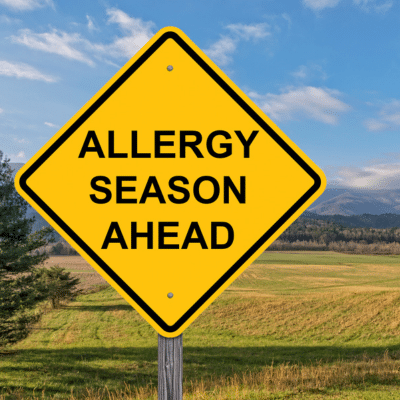
The Link Between Allergies and ENT Health
Allergies occur when the body’s immune system reacts abnormally to substances that are typically harmless, such as pollen, dust mites, pet dander, or certain foods. When exposed to these allergens, the immune system produces antibodies that trigger the release of histamine and other chemicals, leading to inflammation and a range of symptoms.
In the case of ENT health, allergies can affect the ears, nose and throat in various ways. For example, allergic rhinitis, commonly known as hay fever, can cause nasal congestion, sneezing, runny nose and itching of the nose and throat. These symptoms can be particularly bothersome and may interfere with daily activities and sleep quality.
Impact on the Ears
Allergies can also affect the ears, leading to symptoms such as ear congestion, itching, popping sensations and even ear infections. Allergic reactions can cause inflammation in the Eustachian tubes, which are small passages that connect the middle ear to the back of the throat. If allergies cause these tubes to swell or block, it can lead to ear fullness or pressure, along with hearing or balance issues.
Effects on the Nose and Sinuses
The nose and sinuses are often prime targets for allergy-related inflammation. Allergic rhinitis can lead to symptoms such as nasal congestion, sneezing, postnasal drip and sinus pressure. In some cases, chronic inflammation of the nasal passages and sinuses, known as allergic sinusitis, can develop, leading to recurrent sinus infections and facial pain or pressure.
Impact on the Throat
Allergies can also affect the throat, causing symptoms such as throat irritation, coughing, hoarseness and a feeling of scratchiness or dryness. Postnasal drip, which occurs when mucus from the nose drips down the back of the throat, can exacerbate throat symptoms and contribute to discomfort and inflammation.
Managing Allergy-Related ENT Symptoms
Effective management of allergy-related ENT symptoms often involves a combination of preventive measures, lifestyle modifications and medical treatments. Here are some strategies that can help alleviate allergy symptoms affecting the ears, nose and throat:
- Avoidance of Allergens: Identifying and avoiding triggers can help reduce exposure to allergens and minimize allergic reactions. This may involve using air purifiers, keeping windows closed during high pollen seasons and limiting contact with pets or other allergy triggers.
- Nasal Irrigation: Rinsing nasal passages with saline solution can clear allergens, mucus and irritants, easing congestion and enhancing nasal symptoms.
- Allergy Medications: Over-the-counter or prescription allergy medications, such as antihistamines, decongestants, nasal corticosteroids and allergy shots (immunotherapy), can help control allergy symptoms and reduce inflammation in the ears, nose and throat.
- Humidification: Using a humidifier can help keep the air moist, which can soothe irritated nasal passages and throat tissues and alleviate dryness or discomfort.
- Consultation with an ENT Specialist: For severe or persistent allergy-related ENT symptoms, consultation with an ENT specialist may be necessary. An ENT specialist can perform a thorough evaluation, identify underlying causes and recommend appropriate treatment options tailored to individual needs.
Request Your Appointment Today
Allergies can have a significant impact on the ears, nose and throat, leading to a range of bothersome symptoms and potential complications. By understanding the link between allergies and ENT health and implementing effective management strategies, individuals can find relief from allergy-related symptoms and improve their overall quality of life. At Virginia ENT, our team is dedicated to helping patients effectively manage allergy-related ENT issues and achieve optimal health and wellness. If you’re experiencing allergy-related symptoms affecting your ears, nose, or throat, don’t hesitate to request your appointment for personalized care and treatment.





